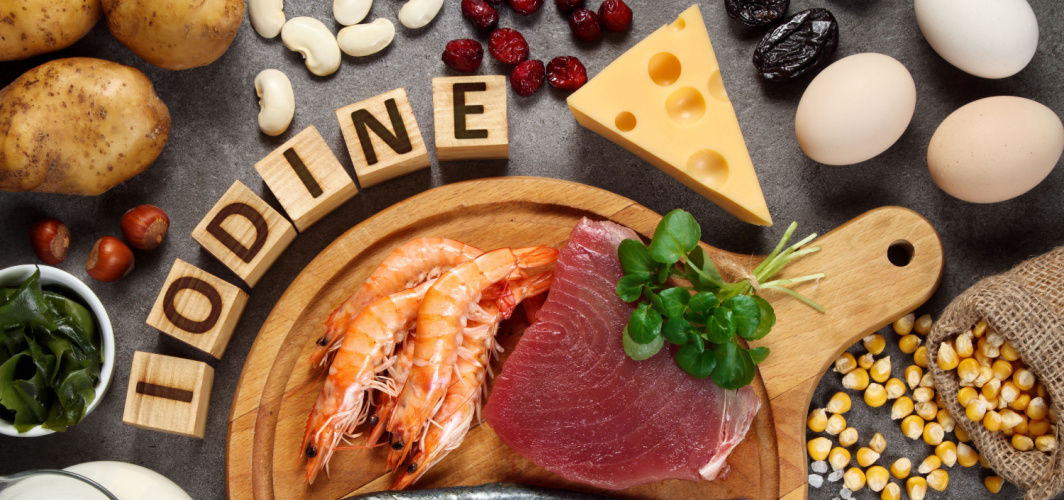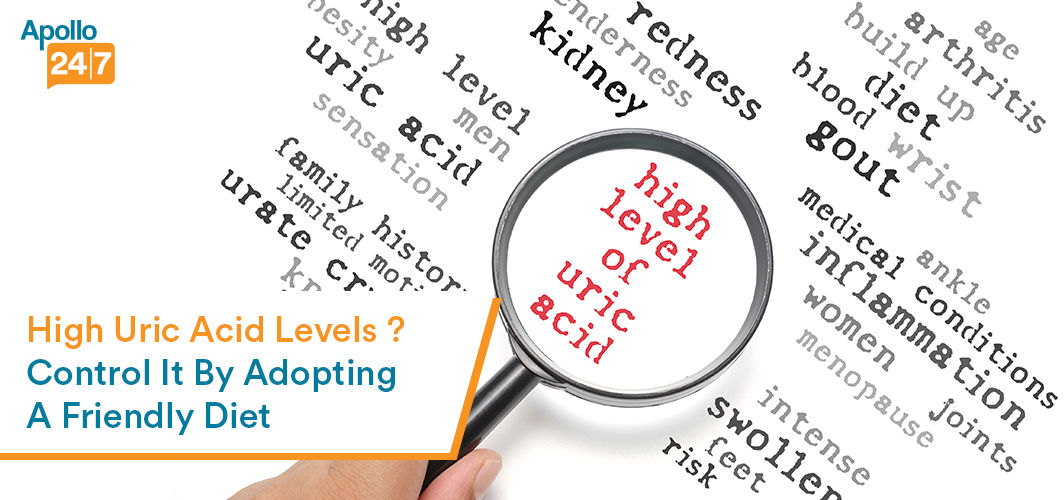General Health
Seaweed To Shrimps, 5 Iodine-Rich Foods For People With Hypothyroidism
3 min read
By Apollo 24|7, Published on - 13 December 2022
Share this article
0
0 like

Hypothyroidism is one of the most common types of thyroid disorders, which reduces the production of thyroid hormones. Also referred to as an underactive thyroid, it manifests in the form of unintentional weight gain, increased sensitivity to cold, constipation, fatigue, muscle weakness, dry skin and even depression. Along with necessary medications, altering your diet can help manage hypothyroidism symptoms. You can improve this condition by adding certain foods to your daily diet, particularly foods rich in iodine.
Iodine is an essential mineral needed for the production of thyroid hormones triiodothyronine (T3) and thyroxine (T4). These hormones help with enzyme activity, the creation of proteins, and the regulation of metabolism. If your body doesn't get enough iodine, the function of thyroid hormones gets hampered, resulting in the development of hypothyroidism. Since your body cannot produce iodine on its own, the best way of boosting the production of thyroid hormones and managing hypothyroidism is by consuming foods packed with iodine. However, make sure to consult a doctor before making any drastic changes to your diet as an excess of iodine can also have harmful side effects.
So, here is a list of the top 5 iodine-rich foods you can add to your daily diet if you suffer from hypothyroidism.
1. Lima Beans or Sem Phali
For those of you looking for the best vegan or vegetarian source of iodine, lima beans or sem phali are a safe bet. The amount of iodine can vary depending on the variation of iodine in irrigation water, soil, and fertilisers. However, on average, a cup of cooked lima beans has around 16 mcg (micrograms) of iodine, which makes 10% of the daily recommended intake. Also, lima beans are high in magnesium, folate and fibre, making them good for your cardiac health.
2. Yoghurt, Milk & Cheese
When it comes to identifying the richest sources of bioavailable iodine, dairy products are at the top of the list. Yoghurt, milk and cheese are all major sources of this trace mineral. In addition, they are also loaded with healthy fats and calcium. The level of iodine content present in dairy products varies greatly. However, when it comes to cheese, mozzarella and cheddar have the highest amount of iodine.
3. Eggs
Another excellent source of iodine is eggs. A large egg can contain up to 24 mcg of iodine. Eggs are also packed with a plethora of other nutrients like iron, riboflavin, folate, protein, and vitamins B12, D and E. Keep in mind that the majority of the iodine content found in eggs comes from the yolk. So, if you only eat egg whites, you'll most likely miss out on the benefits of iodine as well as the other nutrients present.
4. Seaweed
You'll find that sea vegetables serve as one of the richest naturally occurring sources of iodine. Seaweeds come in many forms, of which the most popular are kelp, wakame, Nori and Kombu. For instance, kelp is not only loaded with iodine but also contains B vitamins like riboflavin and pantothenic acid, both of which are very helpful for those suffering from depression and anxiety caused by the mismanagement of the thyroid. Furthermore, seaweed is also low in calories and rich in vitamins, minerals and antioxidants.
5. Shrimps
Shrimp, much like other seafood, is also a rich source of iodine as it tends to absorb some of the iodine naturally present in seawater. Just three ounces of shrimp provide nearly 35 mcg of iodine, which accounts for 23% of the daily recommended intake. In addition to being high in iodine, it is also quite low in calories. Moreover, it provides several other key nutrients like protein, selenium, phosphorus and vitamin B12.
In addition to those mentioned above, some of the other iodine-rich foods that you can add to your diet include sardines, prunes, iodised salt, squid, crab, fish, scallops, tuna, cod, turkey breast, bananas, strawberries and canned corn. For expert advice,
Consult An Apollo Endocrinologist
Medically reviewed by Dr Sonia Bhatt.
General Health
Leave Comment
Recommended for you

General Health
High Uric Acid Levels? Control It By Adopting A Friendly Diet
Do you have high levels of uric acid? Then you must be cautious as it can lead to gout, a painful bone disorder that mainly affects the joints. High levels of uric acid indicate the kidney's inefficiency to eliminate it from the body.
.jpg?tr=q-80)
General Health
The Link Between UTI And Sexual Activity
Sexual activity can increase the risk of bacteria entering the urinary tract, potentially leading to an infection. UTIs are more prevalent in women, with approximately 1 in 5 adult women experiencing a UTI at some point. Women have a shorter urethra than men, which makes it easier for bacteria to enter the bladder due to their anatomy.
.jpg?tr=q-80)
General Health
Pus Culture Test: What It Is And How It Helps Diagnose Infections?
Learn about the pus culture test, its purpose, procedure, and how it helps identify bacterial infections for accurate treatment. Find out when you might need one.
Subscribe
Sign up for our free Health Library Daily Newsletter
Get doctor-approved health tips, news, and more.
Visual Stories

Science-backed Home Remedies for Burns and Blisters
Tap to continue exploring
Recommended for you

General Health
High Uric Acid Levels? Control It By Adopting A Friendly Diet
Do you have high levels of uric acid? Then you must be cautious as it can lead to gout, a painful bone disorder that mainly affects the joints. High levels of uric acid indicate the kidney's inefficiency to eliminate it from the body.
.jpg?tr=q-80)
General Health
The Link Between UTI And Sexual Activity
Sexual activity can increase the risk of bacteria entering the urinary tract, potentially leading to an infection. UTIs are more prevalent in women, with approximately 1 in 5 adult women experiencing a UTI at some point. Women have a shorter urethra than men, which makes it easier for bacteria to enter the bladder due to their anatomy.
.jpg?tr=q-80)
General Health
Pus Culture Test: What It Is And How It Helps Diagnose Infections?
Learn about the pus culture test, its purpose, procedure, and how it helps identify bacterial infections for accurate treatment. Find out when you might need one.